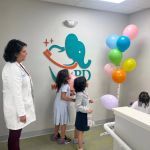Dealing with Dry Mouth in Elderly People: Causes and Solutions
As we age, our bodies go through various changes, and one common issue many elderly people face is dry mouth, also known as xerostomia. I’ve seen firsthand how this condition can affect the quality of life for older adults, leading to discomfort, difficulty eating, and even dental problems. Dry mouth in elderly individuals is more than just a minor inconvenience; it can have serious consequences on overall health if not addressed properly. In this article, I’ll discuss the causes of dry mouth in seniors, the impact it can have on their health, and some effective strategies for managing and relieving it.
1. What Causes Dry Mouth in Elderly People?
Dry mouth occurs when the salivary glands do not produce enough saliva, leading to a dry, sticky feeling in the mouth. For many elderly people, this condition can be a result of multiple factors, including natural aging processes and medications. One of the most common causes of dry mouth in seniors is medication use. Many older adults take medications for chronic conditions such as high blood pressure, diabetes, or arthritis. These medications, such as antihistamines, decongestants, and certain antidepressants, can reduce saliva production as a side effect.
In addition to medication side effects, age-related changes in the salivary glands can contribute to dry mouth. As people get older, their salivary glands may naturally produce less saliva, leading to dry mouth symptoms. Another potential cause is underlying health conditions, such as Sjögren’s syndrome, diabetes, or even certain cancers that affect the salivary glands. Radiation therapy to the head and neck area, often used in cancer treatment, can also damage the salivary glands and cause long-term dry mouth issues.
2. The Impact of Dry Mouth on Seniors’ Health
Dry mouth in elderly people isn’t just uncomfortable—it can lead to a number of serious health issues. The lack of saliva makes it difficult to chew and swallow food, which can result in poor nutrition. Seniors may avoid certain foods or struggle with eating, leading to weight loss and malnutrition. Saliva plays an important role in digestion, as it helps break down food and protect the teeth from decay. Without enough saliva, seniors are at an increased risk for tooth decay, gum disease, and bad breath.
Moreover, dry mouth can make speaking difficult and uncomfortable. This can be particularly distressing for seniors who are already dealing with hearing loss or other communication challenges. The social and emotional impacts of these issues should not be underestimated. Seniors with dry mouth may also experience a higher risk of infections in the mouth, including oral thrush, as the mouth’s natural defenses are weakened without saliva.
3. How to Manage and Relieve Dry Mouth in Seniors
There are several strategies that can help manage and relieve dry mouth in elderly people. One of the simplest solutions is to ensure that seniors stay hydrated. Drinking plenty of water throughout the day can help keep the mouth moist and provide temporary relief from dry mouth. In addition, using sugar-free chewing gum or sucking on sugar-free candies can stimulate saliva production, offering another easy way to manage symptoms.
For those experiencing severe dry mouth, saliva substitutes can be helpful. These are available over-the-counter in the form of sprays, gels, or rinses. I’ve seen firsthand how effective these products can be for some elderly individuals, as they mimic the feeling of natural saliva and provide moisture to the mouth. However, it’s important to consult with a healthcare provider before using these products, as they may not be suitable for everyone.
4. Dietary Adjustments for Dry Mouth Relief
Dietary changes can also play a key role in managing dry mouth symptoms. Seniors should aim to avoid caffeine, alcohol, and spicy foods, as these can contribute to dryness in the mouth. Instead, a diet that includes moist, easy-to-chew foods such as soups, smoothies, and yogurt can help alleviate discomfort. I’ve also recommended incorporating foods that naturally stimulate saliva production, like apples, carrots, and cucumbers, which can provide relief and help with chewing.
Another important consideration is the use of humidifiers in the home. Dry air, especially in the winter months, can exacerbate dry mouth symptoms. Using a humidifier in the bedroom while sleeping can help keep the air moist and prevent further dryness in the mouth. This simple adjustment can make a noticeable difference in the comfort level of seniors who suffer from dry mouth.
5. Seeking Professional Help for Chronic Dry Mouth
While many home remedies and lifestyle changes can help manage dry mouth, it’s important to consult with a healthcare provider if the condition persists. Chronic dry mouth may be a sign of an underlying medical issue that needs to be addressed. A dentist can evaluate the impact of dry mouth on oral health and provide professional treatments, such as fluoride treatments or prescription-strength saliva substitutes. Additionally, they can help identify any oral infections or tooth decay that may have resulted from the lack of saliva.
If the dry mouth is a result of medication use, a doctor may be able to adjust the dosage or prescribe alternative medications with fewer side effects. In some cases, healthcare providers may recommend medications that stimulate saliva production. I’ve personally worked with seniors who experienced dramatic improvements in their symptoms after working with their doctor to find the right solution. It’s crucial not to ignore chronic dry mouth, as it can lead to long-term health issues if not properly addressed.
6. Preventing Dry Mouth in Elderly People
Prevention is always better than treatment, and there are steps that can be taken to reduce the likelihood of dry mouth developing in the first place. Encouraging regular dental check-ups is one of the most effective preventive measures. Dentists can monitor oral health and catch any issues early, such as dry mouth-related tooth decay or gum disease. Additionally, seniors should be mindful of their medications and communicate with their healthcare providers about any potential side effects, including dry mouth.
Maintaining overall health is another important factor. Proper hydration, a healthy diet, and regular exercise can all contribute to better saliva production and reduce the likelihood of dry mouth. If you or a loved one is struggling with dry mouth, it’s important to be proactive and take steps to prevent the condition from worsening. Working together with healthcare providers can help ensure a better quality of life and reduce discomfort associated with dry mouth.
Conclusion: Taking Control of Dry Mouth in Elderly People
Dealing with dry mouth in elderly people can be challenging, but with the right strategies, it’s possible to manage and alleviate the symptoms. Staying hydrated, using saliva substitutes, making dietary adjustments, and seeking professional help when necessary can all make a significant difference in improving comfort and quality of life. If dry mouth is a persistent issue, it’s crucial to consult with healthcare providers to identify the underlying cause and explore treatment options.
If you or someone you care about is experiencing dry mouth, consider visiting Dentistry Toothtruth for more information on effective treatments and expert advice. Their team is dedicated to helping seniors maintain optimal oral health and alleviate the discomfort caused by dry mouth.







 The Modern Endodontist: Yarah Beddawi DDS | Root Canal Specialist in Mountain View and Los Altos4.0 (200 review)
The Modern Endodontist: Yarah Beddawi DDS | Root Canal Specialist in Mountain View and Los Altos4.0 (200 review) Wilmington Pediatric Dentistry5.0 (103 review)
Wilmington Pediatric Dentistry5.0 (103 review) Apex Endodontics4.0 (99 review)
Apex Endodontics4.0 (99 review) Sonrisas Dental Studio3.0 (101 review)
Sonrisas Dental Studio3.0 (101 review) Batastini Frank DDS5.0 (1 review)
Batastini Frank DDS5.0 (1 review) Triplett & Livingston Dental5.0 (964 review)
Triplett & Livingston Dental5.0 (964 review) The Importance of Oral Health Education During Pregnancy for a Healthy Pregnancy
The Importance of Oral Health Education During Pregnancy for a Healthy Pregnancy Best Tips for Brushing Your Teeth Properly for Healthy Gums: Essential Techniques for Oral Health
Best Tips for Brushing Your Teeth Properly for Healthy Gums: Essential Techniques for Oral Health Why Skipping Dental Checkups Can Lead to Bigger Oral Health Problems
Why Skipping Dental Checkups Can Lead to Bigger Oral Health Problems Advantages of Porcelain Dental Restorations
Advantages of Porcelain Dental Restorations How Can Diabetes Cause Tooth and Gum Problems? Preventing and Managing Oral Health Issues
How Can Diabetes Cause Tooth and Gum Problems? Preventing and Managing Oral Health Issues Healthy Habits for Promoting Good Oral Health and Hygiene: Tips for a Healthy Smile
Healthy Habits for Promoting Good Oral Health and Hygiene: Tips for a Healthy Smile